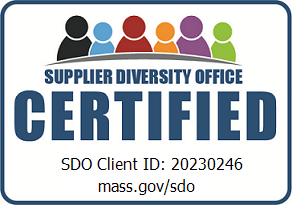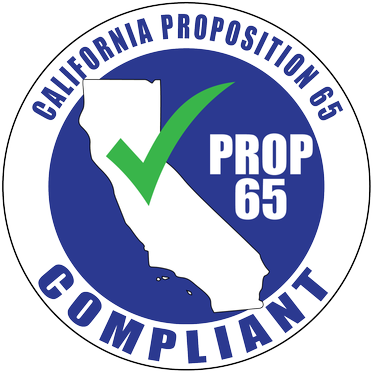Introducing a reusable program for food and beverage containers is a great step towards reducing waste—and it’s a change many campuses are making. But picking a reuse partner can be overwhelming, and it can be hard to know what program features matter most when weighing your options.
We built this guide to help you assess a reusable program for your campus, focusing on key consideration areas including:

1. Environmental Impact
While ease of operations, cost, and student experience are all major parts of the equation, the key purpose of any reusable program is to reduce your environmental footprint. Embracing reusables should mitigate waste and conserve resources. To make sure you’re achieving this goal, your community must embrace the program and containers must properly circulate.
You should make sure that containers are 1. visibly high quality enough that they won’t be mistaken for trash and 2. made from materials that are durable enough that they don’t quickly become trash. Containers should look and feel clean after dishwashing, and be resistant to damage from inevitable scratches and falls.
If your primary goal is to have the most sustainable program possible, studies say that stainless steel is the best option for long-term, high-volume reuse.
All reusable containers must retire eventually, so environmentally-motivated schools will want to consider what the end-of-life looks like for their containers. It’s important to know that “100% recyclable” can be a loose term, so make sure to ask about the specifics of what will happen to a container when your provider takes it out of service.
Questions to ask
- What is your program’s container return rate?
- Are your containers easy to clean? (Hint: Ask for samples and put them to the test. Fill containers with greasy foods and inspect them after the dishwasher.)
- How many uses can we expect from your program?
- How often do containers break? What do you do with broken containers?
- What is your end-of-life plan for container recycling?
Where USEFULL comes in: Our plastic-free program has a 99% return rate, with innovative technology that encourages and incentivizes students to continuously reuse our durable stainless steel containers and food-grade silicone lids.
2. Student Health
To start, we don’t need to tell you the importance of demonstrating care for your students’ health and well being. Research continues to emerge showing that the PFAs (“forever chemicals”) found in many plastic food containers are leaching into our bodies through the food we eat.
Regardless of how they are marketed, science says that all plastic containers shed micro- and nano-plastics, and microwaves supercharge the process of chemical leaching. When students return to their dorm room with cold food, their instinct is often to reheat it in the microwave. But today’s researchers are telling us that putting any kind of plastic in the microwave is a really bad idea.
Questions to ask
- What food safety measures have you taken with your containers?
- Do you have a plastic-free container option?
- Are your containers insulated to hold food and drinks at the proper temperature? Or will food need to be reheated soon after serving?
Where USEFULL comes in: Our containers are 100% plastic-free, made only from stainless steel and food-grade silicone. The materials are free of PFAs, BPA, and other endocrine disruptors.
3. User Experience
The success of a reusable program depends heavily upon the engagement of those who are using the reusables—your students. You should consider how your chosen program will impact their daily lives. Your reusable system’s straightforwardness and ease of use is your biggest lever for driving student engagement.
A program that integrates easily with student life—like allowing students to check in/out containers and receive return reminders via an app that lives on their cell phone or even their campus ID card —improves the dining experience without disrupting it.
Questions to ask
- What are the steps for students to get started checking out containers? Is it a streamlined process?
- What is your container return process? Is it easy and accessible?
- What technical integrations does your program offer to make reusables a unified part of campus life? (Think about single-sign-on, payment integrations, and potential integrations with your dining ordering systems)
- How can students access information about their active checkouts and due dates? Does your program offer an app or notification system to provide this information?
Where USEFULL comes in: Our reusable containers are made of double-walled stainless steel that keeps food at-temperature for 5+ hours. It’s an experience similar to a Yeti or Hydroflask that students absolutely love. We are payment and single-sign-on integrated with all campus cards—including Transact + CBORD, Touchnet, and Atrium. Our premier partnership with Transact + CBORD enables even more comprehensive integrations like mobile order-ahead, kiosk, and POS.
4. Ease of Implementation
One of the biggest concerns for college campuses considering reusable programs is the ease of implementation. Is the program simple to integrate with existing campus partners, or will it be too complex to manage?
Many providers offer a single point solution—solving for one piece of a reuse program, but not all—which leaves dining teams trying to cobble together a system on their own. Juggling separate providers for technology, container inventory, customer support, and marketing materials can be a hassle that your team may not be equipped to take on. The simplicity of choosing a unified solution from day one (rather than switching to one down the line) eases the burden on dining services, making the switch smoother for staff and students alike.
You have established processes to consider, and while any new initiative is going to require some degree of change, it’s important to minimize disruption as much as possible to maximize your chances of success.
Questions to ask
- Is your solution single point (containers only/tracking only) or all-in-one (everything included)?
- Where can students go for technical support with your program? Do you have a helpdesk, or is my team expected to troubleshoot?
- What will launch look like? Will you come on-site to get things up and running?
- What kind of marketing support can you provide?
- Does your program offer ongoing account management services?
Where USEFULL comes in: Our all-in-one program delivers a complete package – from sustainable containers to the tech that tracks them. Plus, you’ll receive hands-on support during the transition and beyond, including API integration with campus card providers and order-ahead solutions as well as assistance with training your staff and marketing the program to students.
5. Data and Technology
Data is essential for tracking progress, optimizing your program, and demonstrating your campus’ commitment to sustainability. An effective reusable program should offer clear, real time insights into how well it’s performing and help you keep tabs on where your container inventory is at any given time.
The best technology can empower you with detailed metrics, including reusable container return rates and overall environmental savings (like water, waste, and emissions reductions). These metrics are crucial not only for internal assessment but also for external reporting—so you can confidently showcase your program’s impact.
Questions to ask
- How can I be certain containers will come back? Do you offer tracking?
- What container data is available to me? Can I run reports to improve operations?
- Do students have access to their personal impact data?
Where USEFULL comes in: USEFULL’s tech-centered approach offers convenience and control powered by our proprietary, industry-leading tech stack that provides all the real-time data captured above. Our technology is simple to use and designed to grow with you, ensuring that your campus can continue to reduce waste as participation increases.
6. Cost and Return on Investment
Finally, the financial aspect of introducing any new program is undoubtedly top of mind. While implementing a reusable program can require an upfront investment, the long-term cost savings are significant.
While reusable containers—especially stainless steel ones—might appear more expensive, they’re actually much more affordable than disposables. As reusables cycle through more and more uses, cost per use drops dramatically over time, unlike disposables that are constantly being repurchased. More durable materials have a longer useful life, so the math adds up to huge savings.
As you assess potential reusable partners, be sure to ask questions around upfront capital expenditures and return on investment. Look for a provider who understands that campus dining often runs on a tight budget and can help you quantify how the numbers will work for you.
Questions to ask
- What is the upfront cost of your program?
- Does your program have payment plan options that will help keep startup costs low?
- What will container replacement costs look like?
Where USEFULL comes in: USEFULL partners have saved an average of 20-50% on takeout costs by switching from single-use to reusables. We also offer an inventory lease system that avoids large capital expenditures through a flat monthly fee covering everything from containers to technology and implementation.
Ready to Start Your Search?
Introducing a reusable program may seem overwhelming, but with the right provider, reuse can be an easy win for your dining program. By considering environmental and student impact, implementation, data insights, and cost, you’ll be well-equipped to make a decision that suits your campus best.
Looking for a solution that covers it all? Explore how USEFULL’s all-in-one reusable program can bring your campus closer to a zero-waste future. Reach out today for a demo and a sample!





